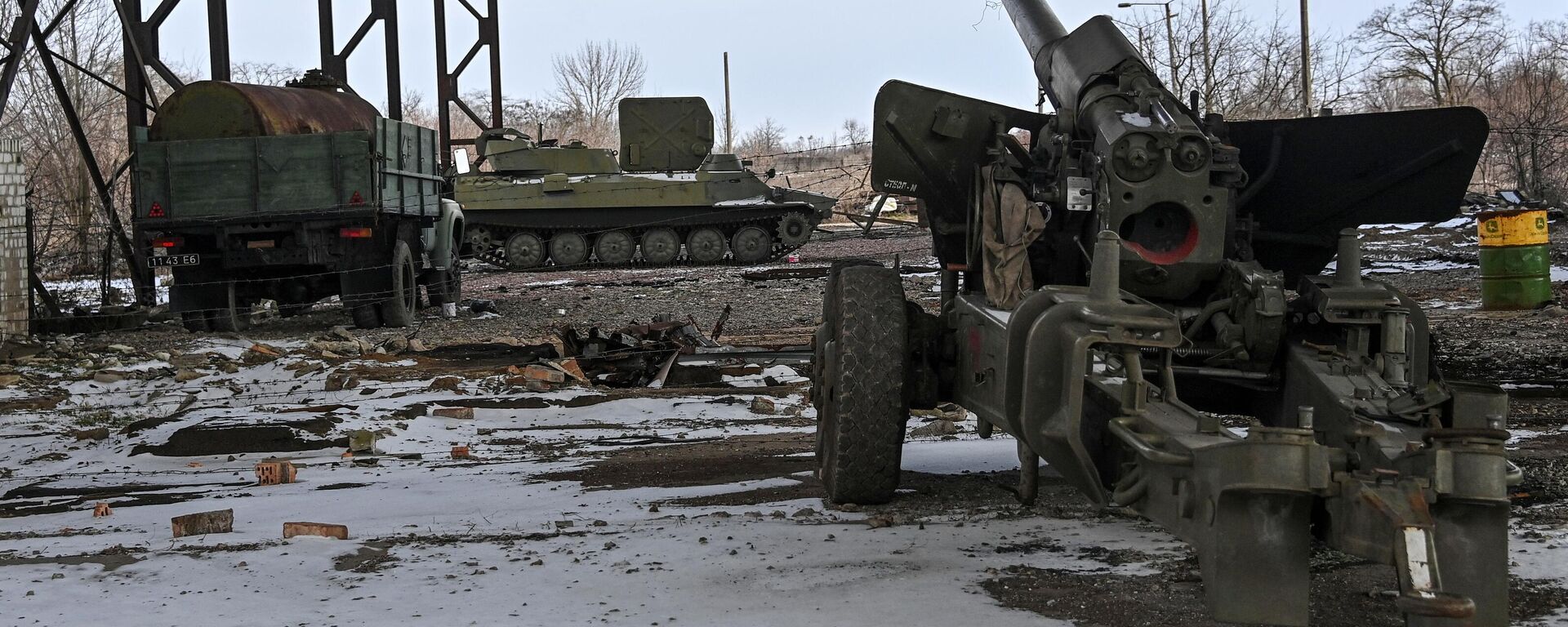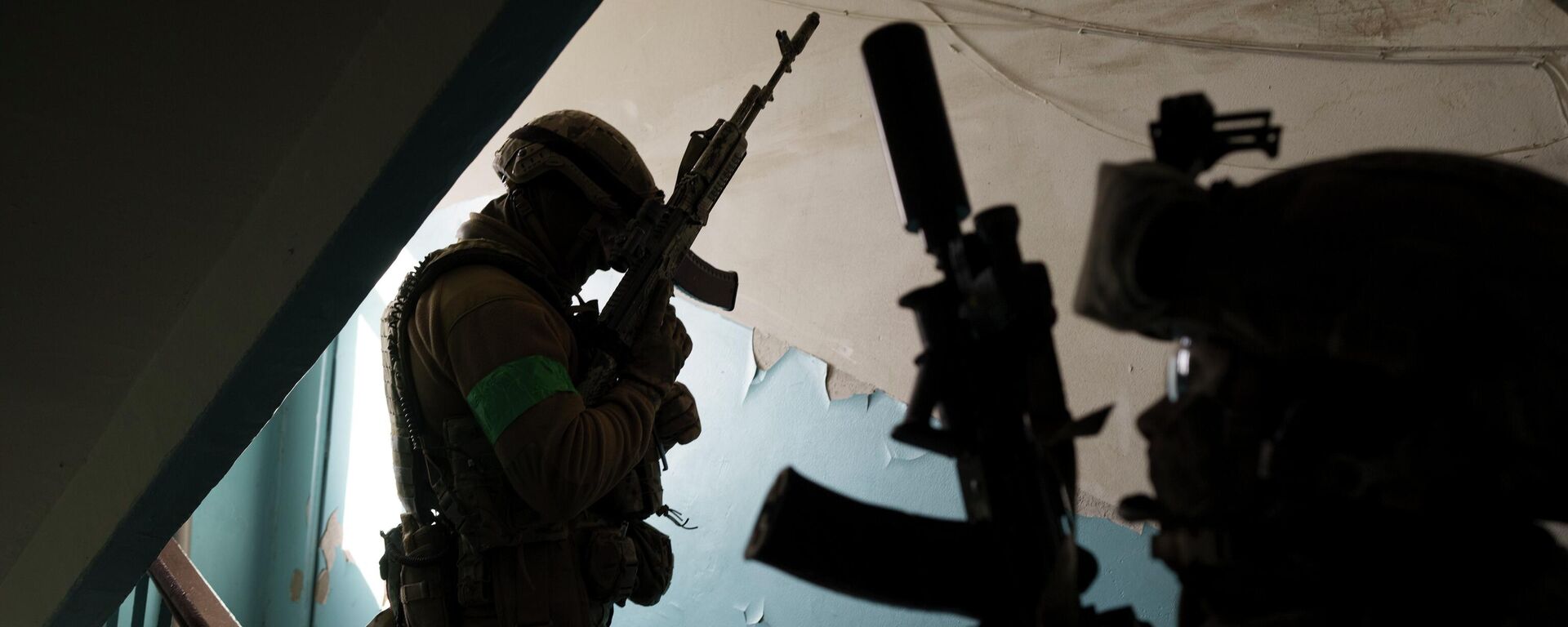Forgotten Angels: How Ukrainian Forces Killed Donbass Children
17:17 GMT 27.07.2023 (Updated: 17:15 GMT 31.07.2023)
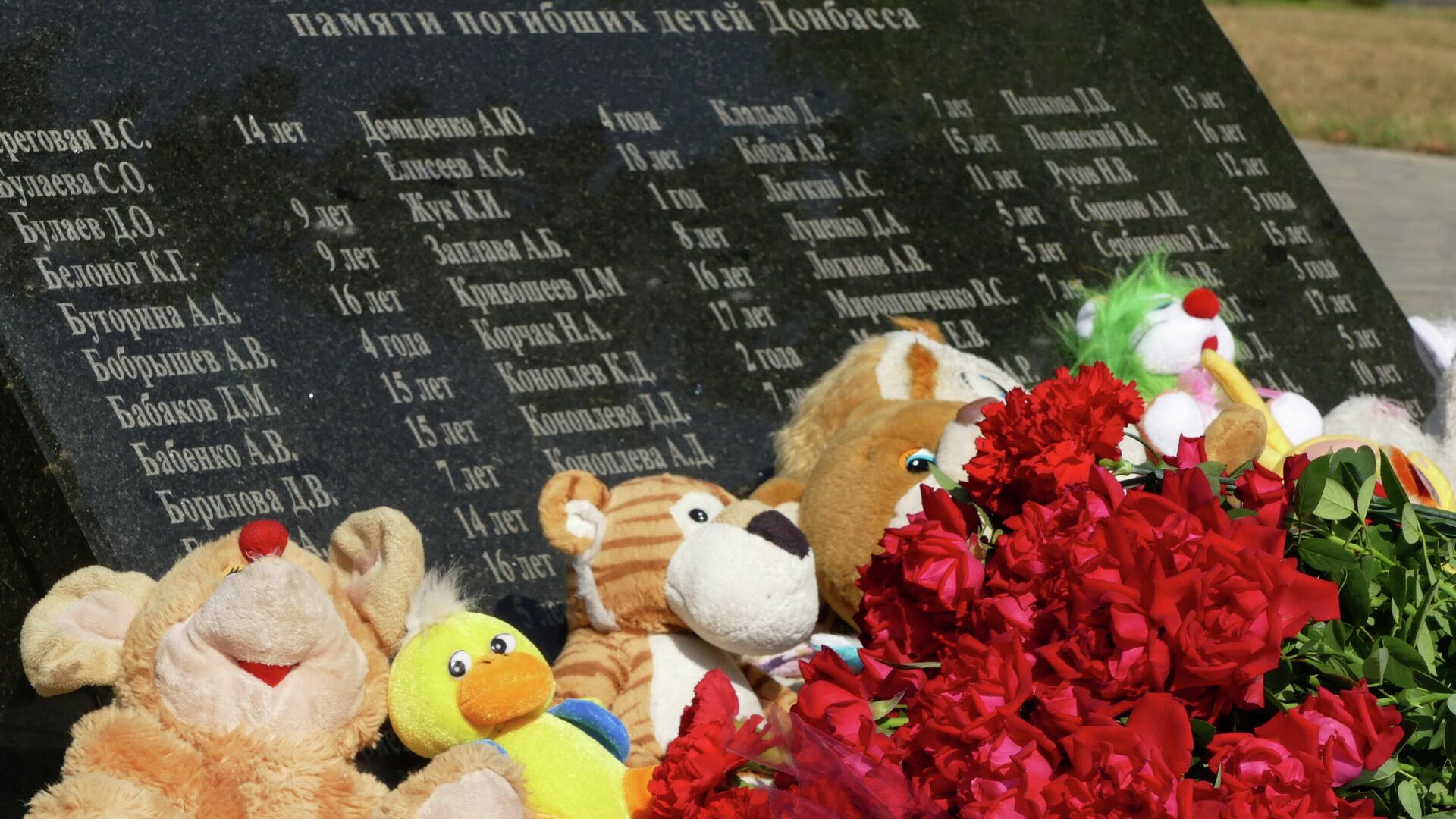
© Sputnik / Igor Maslov
/ Subscribe
On July 27, the Donetsk People's Republic observes its Day of Remembrance for the Child Victims of the War in Donbass. Elena Bobkova, a war correspondent, and public figure, told Sputnik how she began assisting the kids of Donbass.
"Since the beginning of the liberation of Mariupol, I have been working there. This happened accidentally. Children used to always run up to me, when I walked through the ruined city, children always ran up to me, small [children], preadolescent [kids], and teenagers," recalls Elena Bobkova, host of the Children of Donbass project.
On July 11, 2022, Denis Pushilin, head of the Donetsk People's Republic, issued a decree establishing July 27 as the date to memorialize Donbass' children killed by the Ukrainian military and nationalist battalions since 2014.
In anticipation of the day, Bobkova and her colleagues started to film a documentary about the children of Donetsk and Mariupol, many of whom had never seen a peaceful sky over the past nine years. The children opened up to them and shared their stories, thoughts and dreams. The premiere took place on September 29 at the Victory Museum on Kremlin Square. There were 500 spectators there, including children.
"I saw this movie myself and I cried. Even though I shot this film," she said. "You can't fight against children. And, to be honest, I will never forgive these crimes against children. These [crimes] have no statute of limitations, this will never be forgotten. We will always remember this. And I will never forget those children's eyes. This is how I see them, these children's eyes, and they tell their stories. I see them sometimes in my dreams at night. Sometimes I get scared."
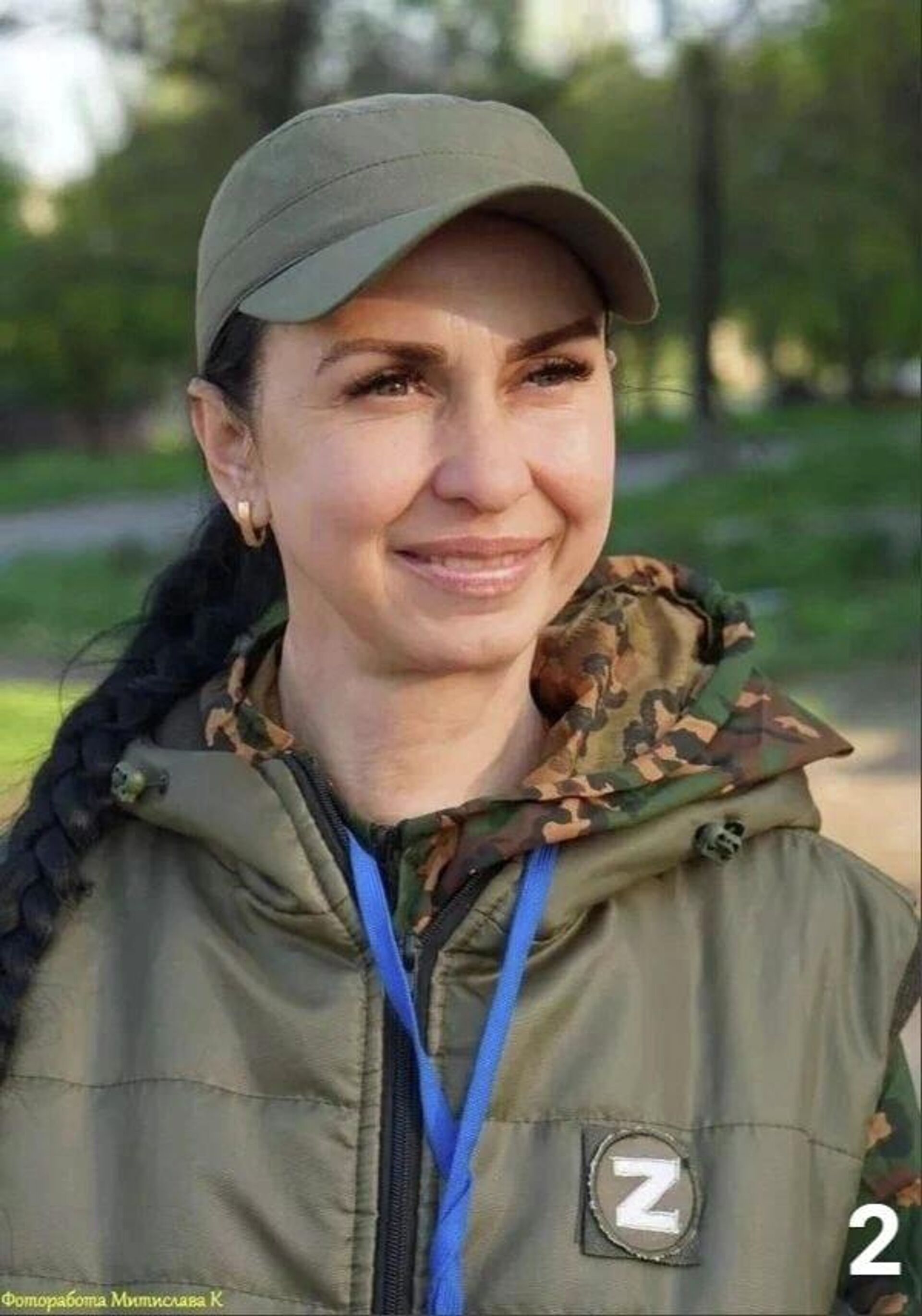
Elena Bobkova, war correspondent
© Photo : Elena Bobkova
Donbass Children Grew Up Too Early
The children of Donbass differ a lot from their peers in the West. They have different priorities. They don't dream of new toys or fancy clothes, they long for peace. Ukraine's war against Donbass civilians started in April 2014 and has never ended since then.
"They are adults, just miniature adults," Elena contends. Their eyes could tell you about the experience and trauma they have endured. These are the eyes of children who have grown up too soon, according to Elena.
"These are strong children, these are 'child fighters' one can rely upon," she explained. "They strictly follow the instructions (…) they are not mischievous, and they are not capricious. They are just fine with everything. Gifts? You ask: 'What would you like?' Do you know what they answer? 'We have everything that we need. We would like peace. Food and clothes are here. We would like peace. We would like to play outside.' Do you understand that they can't go outside? They have already forgotten how to play outside, and some did not even know, because the war has been going on for nine years. Some children were born during the war. They don't know what 'peace' means."
Having launched nothing short of genocide against Russian-speakers in Donbass nine years ago, the Kiev regime – illegally installed in Ukraine in February 2014 by US-backed nationalist elements – neither observed the Minsk Agreement, nor did they stop killing people.
The children of Donbass are taught from an early age that they are not allowed to walk on lawns, pick up objects on the street due to the notorious "Lepestki" ("Petals"), high-explosive anti-personnel mines dispersed by the Kiev regime in Donbass.
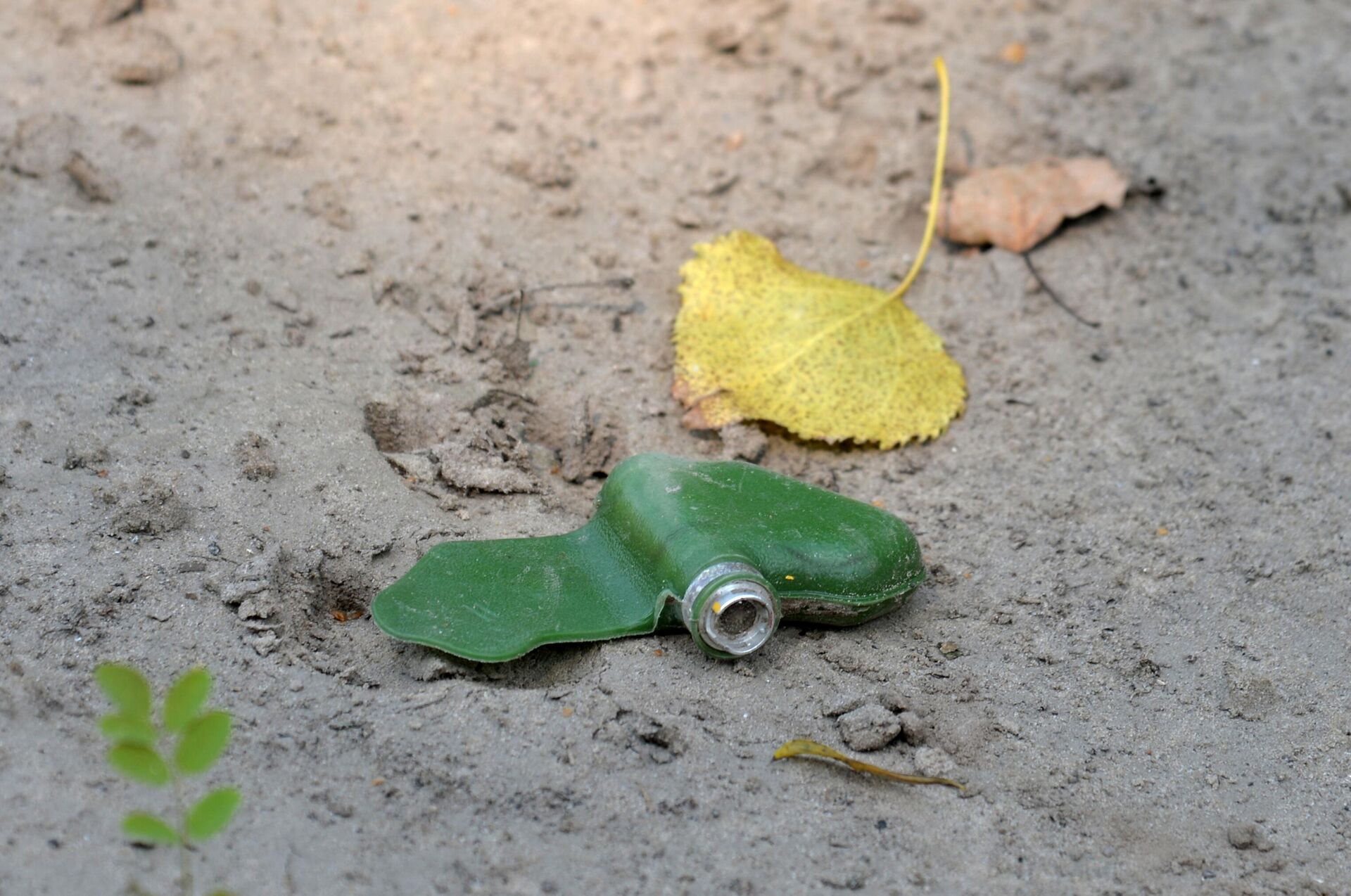
The PMF-1 Lepestok (Petal) antipersonnel pressure-type landmine
© Sputnik / Viktor Antonyuk
/ "[The Ukrainian military] scatter these 'petals' everywhere," said Elena. "You see, Ukraine is mercilessly bombarding the entire Donetsk with these munitions, which have been banned for a long time. By convention, you know? They are prohibited because these munitions harm civilians."
"'Petals' have already become commonplace. You go and ... Everyone looks under their feet, no one walks in the grass. If there is grass somewhere, no one dares to take a step in there, even if people walked there, it's still not safe."
Now that Ukraine received new cluster munitions from the US, the children of Donbass are in grave danger, according to Bobkova.
As of July 20, 2023, the number of children killed on the territory of the Donetsk People's Republic (DPR) for the entire period of Ukraine's armed aggression is 228, and 792 were injured, according to the DPR's commissioner for human rights, Darya Morozova.
The Alley of Angels: In Memory of Slain Donbass Children
None of those fallen victims of Ukrainian aggression have been forgotten. Donetsk's civilians created a memorial complex and named it "the Alley of Angels." On the slab, made of red granite, an inscription in gold letters reads: "The Alley of Angels. In memory of the fallen children of Donbass."
It was unveiled on May 5, 2015, after a memorial sign was installed. On June 2, 2017, a monument to the "Children of Donbass" was erected in the alley.
"When I come to the Alley of Angels, I often go there for work, and in general, when I approach it, I say: 'Well, hello, children'," said Elena. "I always talk to them. There are always toys, fresh flowers. (…) There is a name at the top, Nikita Rusov, a boy, the nephew of my daughter's teacher. He was the only son of his parents. I said this in the movie too. He was their only son, they don't have any more children. He was torn to pieces by a shell. Can you grasp this? God forbid. This child is dead."
You won't be able to find any information about the Alley of Angels in Donetsk on Wikipedia in English because it has been repeatedly deleted. The story of Donbass children killed, injured and mutilated doesn't fit into the West's Ukraine narrative, so it is scrubbed.
"I would like to tell you about another family. I will never forget these two girls from Mariupol. They were walking down the street. I didn't even understand where they came from (…) Zhanna and Kristina. They simply told me that a dead Azov* militant lay in their yard and that his head was eaten by dogs; and that their mother died in the basement from the cold. You know, they said it so matter-of-factly, as if 'we got up today, we ate; we went here and there; did this and that.' They were telling me this and I was shocked. Can you imagine this? For them, [these horrors] had become a normal, everyday thing. This is terrifying."
According to Elena, these children, who have grown up too fast, have crossed some invisible barrier. Death and suffering have become the new norm for them, horrible as it seems.
"The same is with Sonya, who, together with her mother, buried her father," Bobkova continued. "Mom closed her eyes. There is a girl in the movie. When her Dad was killed by a shell, and when they came out of the basement to collect snow to melt it and drink [it as water], they passed by the corpse of Dad. (…) It was still very cold, it was February. And then, they dug the frozen ground and buried this corpse so that the dogs would not drag it away. Do you understand? Dogs tore up human bodies. The worst thing is that when I was walking around Mariupol, a dog ran past me, and it had a human hand in its mouth. What a horror!"
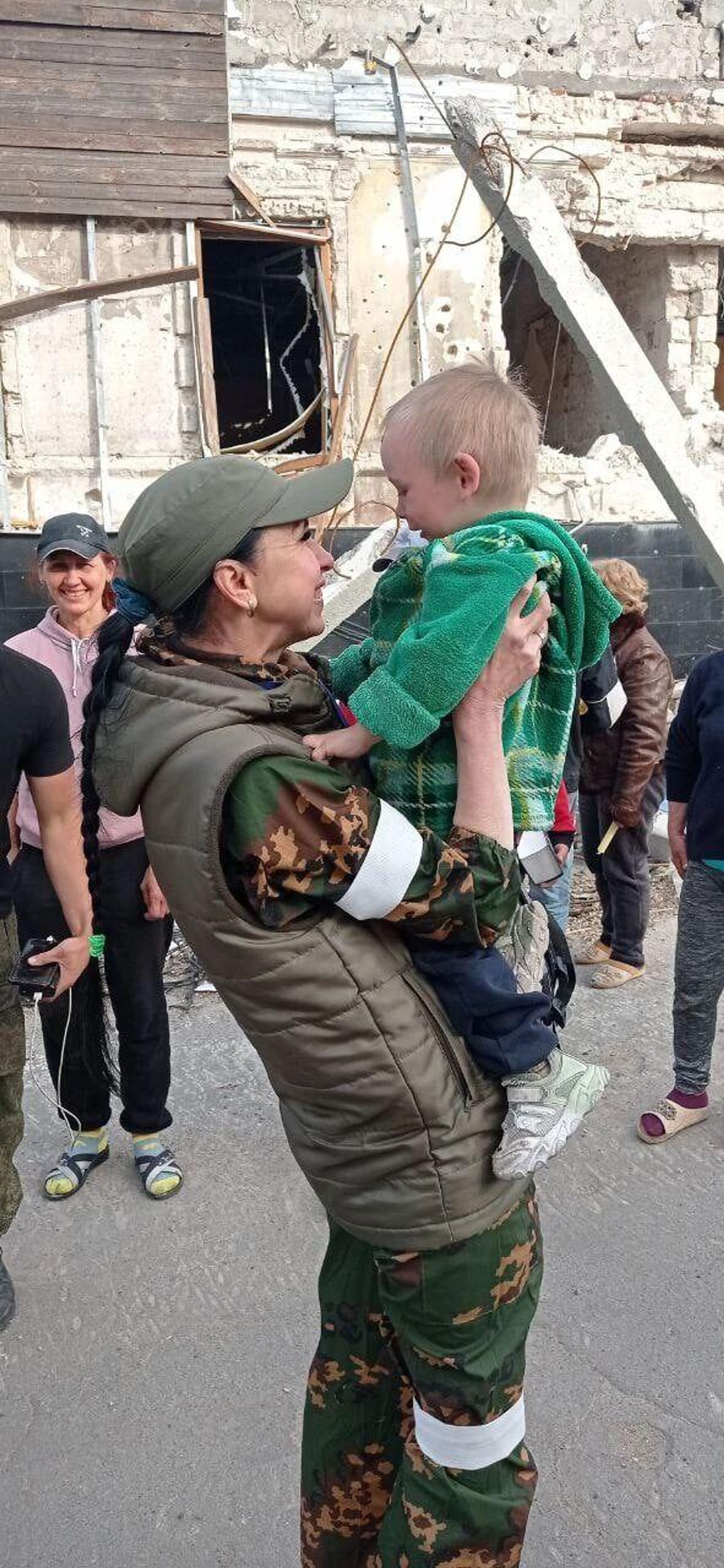
Elena Bobkova, war correspondent, with the children of Mariupol
© Photo : Elena Bobkova
Donbass' Children Find New Home in Russia
There isn't a single family in Donbass that has remained untouched by Ukraine's nine-year long war.
"The most important thing is to stay safe and sound, to survive, but most importantly to win," Elena said. "Because if we do not defeat this evil, if we just suppress it for a while, it will continue to grow again. It is necessary to root it out forever."
Those Donbass children who survived the hostilities are currently in the care of the Russian Federation. When it comes to orphanages, they are also supervised by Russia. A lot of children have been adopted. "Children are not abandoned. Orphans are not left behind," Bobkova stressed.
Elena is stunned and outraged by the lies spread in the West about Russia "abducting Ukrainian children". "I could hardly imagine that everything could be turned upside down like that," she said, wondering what's behind the perverted logic of the 'blame Russia' crowd.
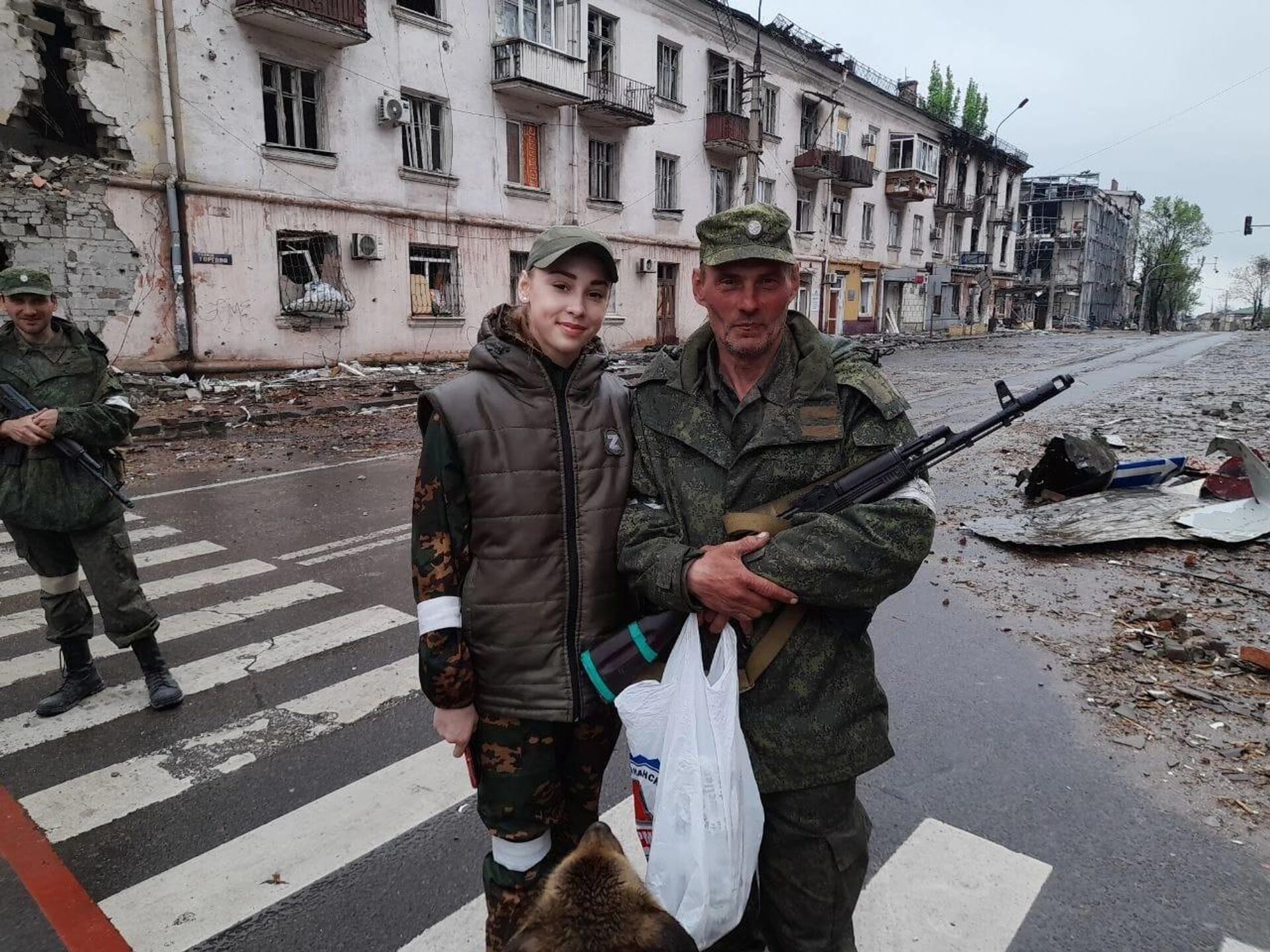
Maria Bobkova, daughter of war correspondent Elena Bobkova, in Mariupol, with humanitarian aid. April 2022.
© Photo : Elena Bobkova
"Russia has shouldered this responsibility: our children are all in recreational day camps, on vacation sponsored by the Russian state," Bobkova affirmed. She noted that the children from Donbass travel across Russia, visiting Moscow, St. Petersburg, Anapa, Sochi, Novosibirsk, to name just a few. "Our Motherland is so immense!" she said.
If these children were in the Kiev regime's care, they would have never seen the light of day and would have looked at the world through a keyhole, according to the correspondent.
"Our children study at the best universities [in Russia]. They have quotas. And my daughter studies entirely for free. I can't even fathom that in Ukraine this would have any chance of occurring. When I asked the Russian authorities: 'How much money do I owe you?' They told me: 'Zero'. Imagine that?"
The Donetsk and Lugansk People's Republics, as well as Kherson and Zaporozhye, officially joined the Russian Federation in September 2022.
People of the West, Stop and Look at Your Children
When asked what she wants to tell her Western peers, Elena responded: "I would want [Western] people to think, to stop for a moment and look at their children, look into their eyes and imagine that somewhere, in a cold basement, a child is sitting without water and food. So that, God forbid, their child does not ever end up in exactly the same situation."
*Azov Battalion is a terrorist organization banned in Russia.

